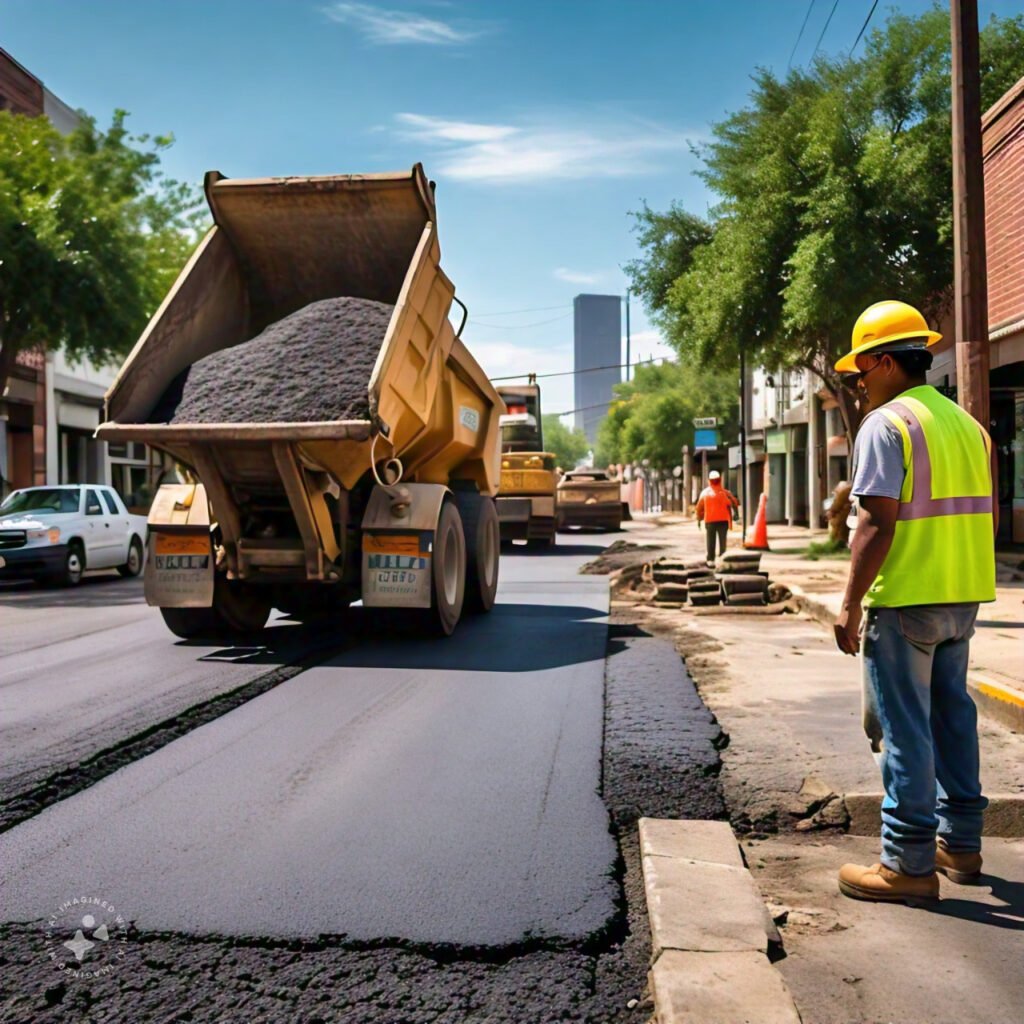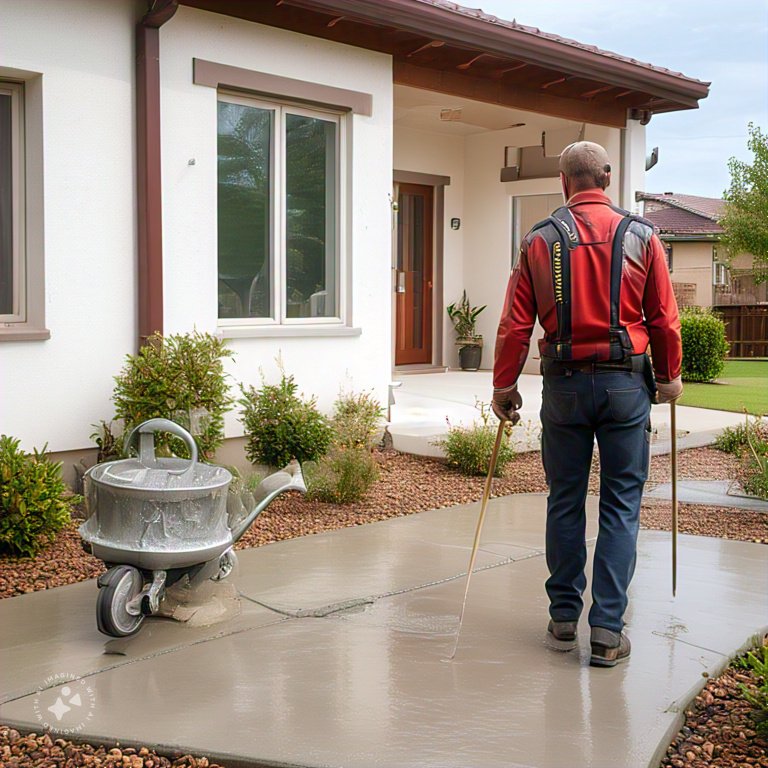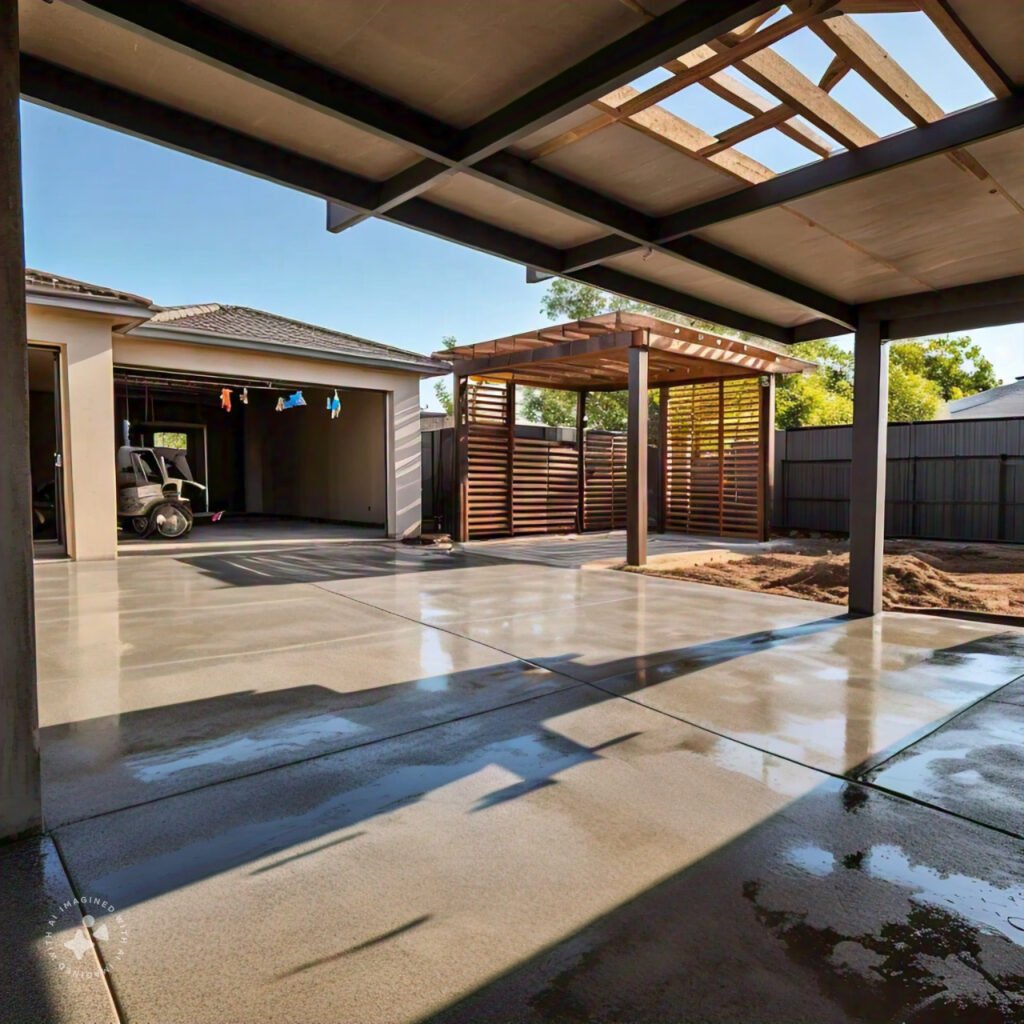Concrete or Asphalt
When it comes to street paving in Houston, one of the most important decisions you’ll face is whether to use asphalt or concrete. Both materials are commonly used, but they each offer different advantages and disadvantages depending on your project’s specific needs, budget, and long-term goals. In this article, we will explore the pros and cons of asphalt and concrete to help you decide which is best for your street paving project.
Cross Construction Services
1. Asphalt: A Flexible and Affordable Option
Asphalt, also known as Hot Mix Asphalt Concrete (HMAC), is a popular choice for paving roads, parking lots, and residential driveways. It’s a mixture of aggregates and bitumen that creates a smooth and flexible surface.
- Pros:
- Cost-Effective: Asphalt is typically cheaper to install than concrete, making it a good choice for projects with tighter budgets.
- Quick Installation: Asphalt can be laid and ready for use much faster than concrete, reducing construction time and minimizing traffic disruptions.
- Flexibility: Asphalt’s flexible nature allows it to handle minor ground movements and temperature changes without cracking as quickly as concrete might.
- Recyclable: Old asphalt can be recycled and reused, which can help reduce the environmental impact of the material.
- Cons:
- More Maintenance: Asphalt requires more frequent maintenance, such as seal coating and crack filling, to prevent potholes and surface damage.
- Shorter Lifespan: Asphalt typically lasts 15-20 years, which is shorter compared to concrete, making it less ideal for long-term investments.
2. Concrete: A Durable and Long-Lasting Choice
Concrete is another popular material for street paving in Houston. It is composed of cement, water, and aggregates, creating a rigid, durable surface that can last for decades.
- Pros:
- Longevity: Concrete can last up to 30 years or more with minimal maintenance, making it a great long-term investment for high-traffic areas.
- Lower Maintenance Costs: Once installed, concrete requires far less maintenance than asphalt. Its rigid surface is resistant to weather conditions and heavy traffic.
- Heat Resistance: Concrete doesn’t soften in high temperatures, making it ideal for Houston’s hot summers where asphalt may become more prone to deformation.
- Reflective Surface: Concrete’s lighter color reflects sunlight, helping reduce the urban heat island effect and keeping the surface cooler.
- Cons:
- Higher Initial Cost: Concrete is more expensive to install than asphalt, which may be a deterrent for budget-conscious projects.
- Longer Installation Time: Concrete takes longer to cure than asphalt, which can delay road usability and extend project timelines.
- More Prone to Cracking: While concrete lasts longer, it is more susceptible to cracking due to temperature fluctuations if expansion joints are not properly installed.
3. When to Choose Asphalt
- Residential Streets: Asphalt is a great choice for residential streets where traffic is lighter, and the budget is a major consideration.
- Short-Term Projects: If you need a quick and affordable solution, asphalt’s shorter installation time makes it an ideal option.
- Areas with Ground Movement: Asphalt’s flexibility allows it to adapt to minor ground shifts without cracking, making it suitable for areas with unstable soil.
4. When to Choose Concrete
- High-Traffic Roads: Concrete is best for commercial roads, highways, and other high-traffic areas where durability is crucial.
- Long-Term Investment: If you’re looking for a long-lasting solution with lower maintenance costs, concrete is the better choice despite the higher initial cost.
- Hot Climates: In areas like Houston where temperatures frequently soar, concrete’s heat resistance makes it the preferred material for longevity.
5. Frequently Asked Questions About Asphalt and Concrete Paving
- Which is more environmentally friendly? While asphalt can be recycled, concrete’s longer lifespan and lower maintenance needs often make it more environmentally sustainable over the long term.
- How does maintenance compare between asphalt and concrete? Asphalt requires more frequent maintenance, including resealing every few years, while concrete typically needs only occasional joint sealing and crack repair.
- Can asphalt and concrete be used together in the same project? Yes, in some projects, asphalt is used for the surface while concrete is used for curbs or other areas that require more durability.
Concrete Solutions
Choosing between asphalt and concrete for your street paving project in Houston depends on your specific needs, budget, and long-term goals. Asphalt is a flexible, cost-effective option that works well for residential streets and short-term projects, while concrete offers long-lasting durability with lower maintenance, making it ideal for high-traffic areas and long-term investments. By weighing the pros and cons of each material, you can make an informed decision that best suits your project’s requirements.


